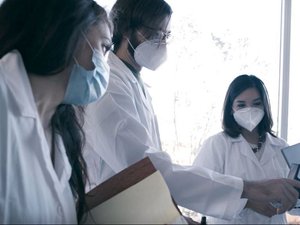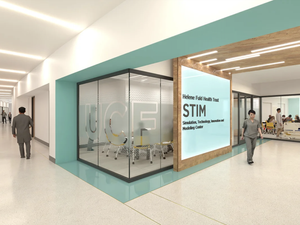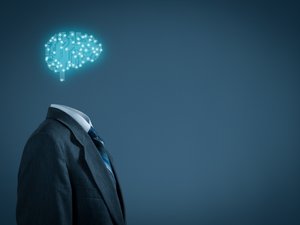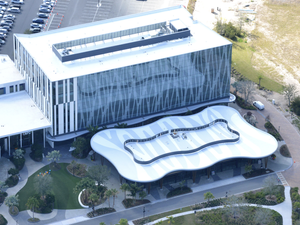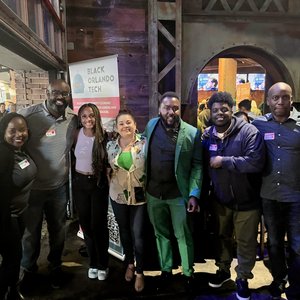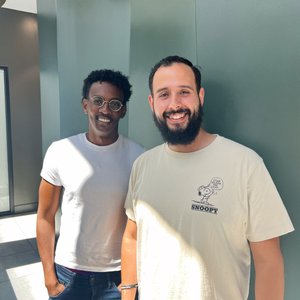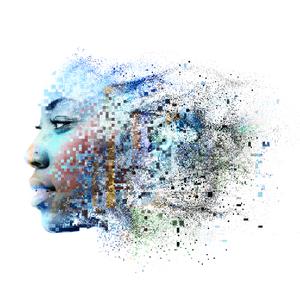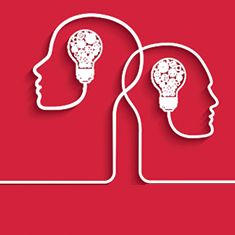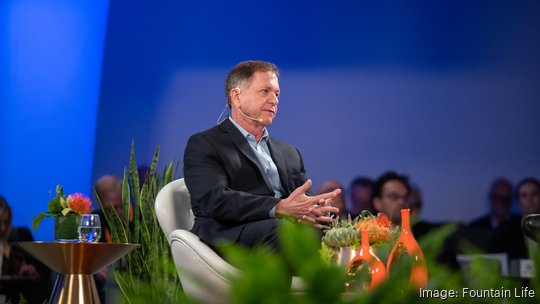
Since February, Orlando residents with about $20,000 to spare have been able to try out an emerging health care technology — thanks to a soon-to-be local company.
The high-tech system can detect life-threatening disease earlier via medtech firm Fountain Life's technology layering newly-developed AI capabilities on traditional brain and body scans.
"Most people come in thinking they're healthy. It turns out that about 2% have cancer, about 2.5% have aneurysms and 14% of people have an actionable finding that needs to be addressed. Forty percent are pre-diabetic," said CEO Dr. Bill Kapp. The premise is that addressing health conditions sooner leads to a longer life.
Emerging trends in artificial intelligence (AI) and machine learning fall into four categories — natural language processing, computer vision, deep learning and explainable AI — all of which are factors in the ongoing development of high-tech diagnostic tools at the Florida-based medtech company.
Fountain Life’s headquarters will move from Naples into Lake Nona’s newest medical office building, One Performance Plaza, in mid-August. The company already opened a precision diagnostic center in Lake Nona, with other locations in Naples; White Plains, New York; and Dallas.
Cofounded by motivational speaker and author Tony Robbins, Fountain Life offers “Apex” membership for $19,500 per year, a price tag that helps explain where its centers will open next: Santa Monica, California; Dubai, UAE; Toronto; New Delhi, India; and Velvaere, a wellness-centric community in Park City, Utah.
Here’s what you get for the money: access to early-detection technology in the form of MRIs overlaid with AI technology, advanced treatment plans and concierge medical service. Kapp said the company plans to democratize access to its services, but for now, there are no a la carte options.
Orlando Inno asked Dr. Kapp to break down the ways AI powers and informs its services and how the company will make early detection available to more people.
How are Fountain Life’s diagnostics aided by AI?
There are several different types of AI that we use inside of Fountain Life. Around the world, about two medical articles are published every minute of every day, and it's impossible for your doctor to keep up with the latest innovations, but natural language processing AI can. We can read the world's medical literature and then categorize it for its scientific veracity. We use computer vision AI to help analyze the scans we're doing for people. So, for instance, we do a whole body MRI as part of their assessment, looking for asymptomatic disease before it becomes symptomatic. There are about 10,000 images collected, and while the human eye is really good about reading some things and historically radiologists have read these scans and do a great job, the human eye cannot pick up the subtleties in some of these findings.
How does Fountain Life’s scan help find areas of concern that a typical scan might not?
We use artificial intelligence to look at body composition, visceral fat, all kinds of different things, including very small areas that might be cancerous. These are things that are not found in a normal scan or a typical radiology suite because most radiologists aren't looking for asymptomatic disease or trying to detect patterns for asymptomatic disease for reversal.
What do radiologists usually look for?
Usually when you get an MRI scan, it's because you've got a bad knee or a bad hip or you've had a stroke. So they're really confirmatory diagnoses they use the scans for rather than looking at it for prevention. That's one way we use it. The other way we use it is we do a very advanced cardiac screening test, an AI overlay for a cardiac CT angiography, which means we put a little dye in your vein and then we take a quick CAT scan of your heart.
Isn’t that test standard?
It's been around a really long time, at least 30 years. But it's always been read with the human eye. Now we have an AI overlay that will read the images of the vessels, and we can tell you exactly how much plaque you have in your arteries and whether it's stable plaque or unstable plaque, then show you a way to reverse that. Historically, this was not easily visualized with the human eye, but the computer can do it literally in a matter of seconds.
It sounds like you're saying this approach is what distinguishes Fountain Life from other health care providers.
Nobody's really as healthy as they think they are. Feeling good is not the same as being as healthy as you could be. In medicine today, we wait until you break and then we fix you. Now the technology exists to detect disease at the earliest stages. That’s what we do at Fountain Life.
How does data derived from a scan turn into actionable information?
Explainable AI can take a complex medical record and translate it into layman's terms. We also are developing deep learning algorithms giving us insights into what your health is on a daily basis. We believe that ultimately you're going to wind up with this data in your own hands. Once a year you may go get a whole-body MRI or you might get some blood work done. You’ll feed it in your own algorithm and it's going to give you recommendations.
What does AI mean for the medical profession?
It doesn't replace the doctor, but what it does is give the doctor a better copilot. With all this information, the doctor can distill down into areas that don't become so cumbersome that we lose the patient in all the data.
What’s next for Fountain Life?
We're putting together a very large AI project with the goal of democratizing access to asymptomatic disease detection. We have data on over 4,000 people who have been through our full scanning process. We’ll be able to use this data to compare how this data from full body MRIs and advanced technologies compare with biomarkers obtained from blood and urine. These algorithms will allow us to scale access to low-cost early disease detection through our AI platform.
We use component pieces that are already out there. We're not building the data centers; we are developing our own AI around what exists.
We’re also starting to put together algorithms for precision medicine so we can look at all of your data, your whole genome sequencing. We'll look at your microbiome data, which means all the bacteria that live in your gut. We look at the bacterial composition and analyze that with artificial intelligence.
Does insurance cover Fountain Life services?
Right now it doesn't. It's very hard to change the existing health system because, quite frankly, the existing health system makes more money the sicker you are. The payment model right now does not pay doctors to keep you healthy or to detect disease early.
We started a health insurance company for self-insured employers last summer where we use a lot of the same diagnostic testing as a benefit inside the health insurance. Two [thousand] or 3,000 people are on that plan right now, and that program is slowly growing.
Will your platform translate into jobs at Fountain Life?
Right now, we mainly work with partnerships. Our tech team has about 20 people on it, and it's growing as we figure out exactly what pieces we need. With our headquarters relocating here, we'll have about 40 employees locally. The company overall has about 120 employees.
How pertinent is your Lake Nona location in the grand scheme of things?
Lake Nona is critical for us. It's the perfect ecosystem because we're able to intersect with technology companies at the incubator. We collaborate with the University of Central Florida, and the whole infrastructure associated with the Space Coast is helpful.
Emerging AI areas
These are emerging trends in AI and machine learning, according to Analytics Vidhya, a community-based knowledge portal for Analytics and Data Science professionals:
- Natural language processing is an AI technology that eradicates the necessity of manually typing content by capturing human language using algorithms that interpret, manipulate and output automatically.
- Computer vision derives insights using visual data and images obtained through algorithms, videos and images, and then acts accordingly based on the information.
- Deep learning, powered by artificial neural networks, helps machines perform tasks as accurately and sometimes more accurately than humans.
- Explainable AI makes the results created by machine learning algorithms of AI understandable and reliable to users.
Deep dive
Readers interested in staying current with the changes to medicine brought by AI can tune in to a new podcast, NEJM AI Grand Rounds, produced by the New England Journal of Medicine.
Hosted by Arjun (Raj) Manrai of Harvard Medical School and Andrew Beam of Harvard T.H. Chan School of Public Health, the podcast features informal conversations with a variety of unique experts exploring the deep issues at the intersection of artificial intelligence, machine learning and medicine.
Sign up here for The Beat, Orlando Inno’s free newsletter. And be sure to follow us on LinkedIn, Facebook and Twitter.
